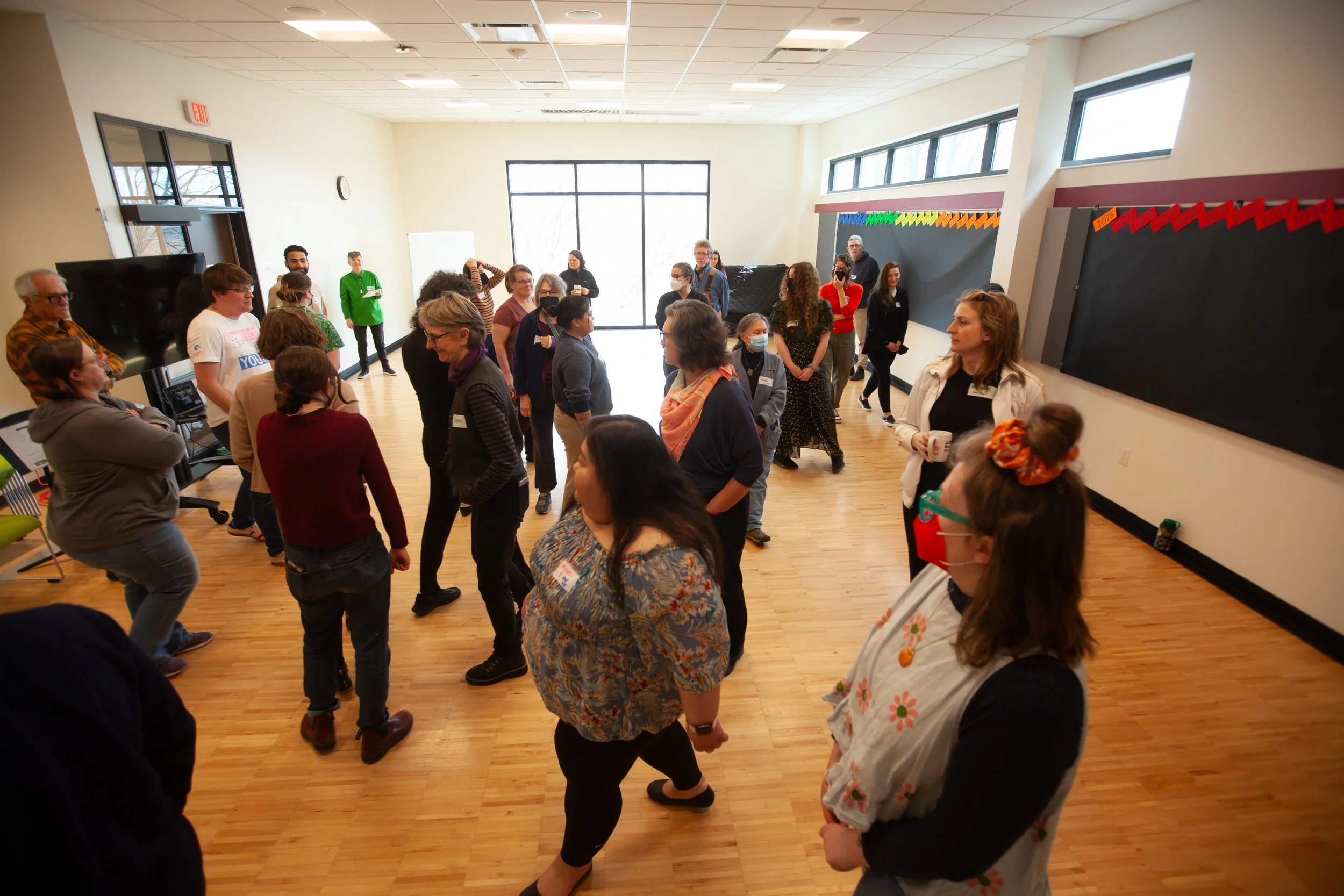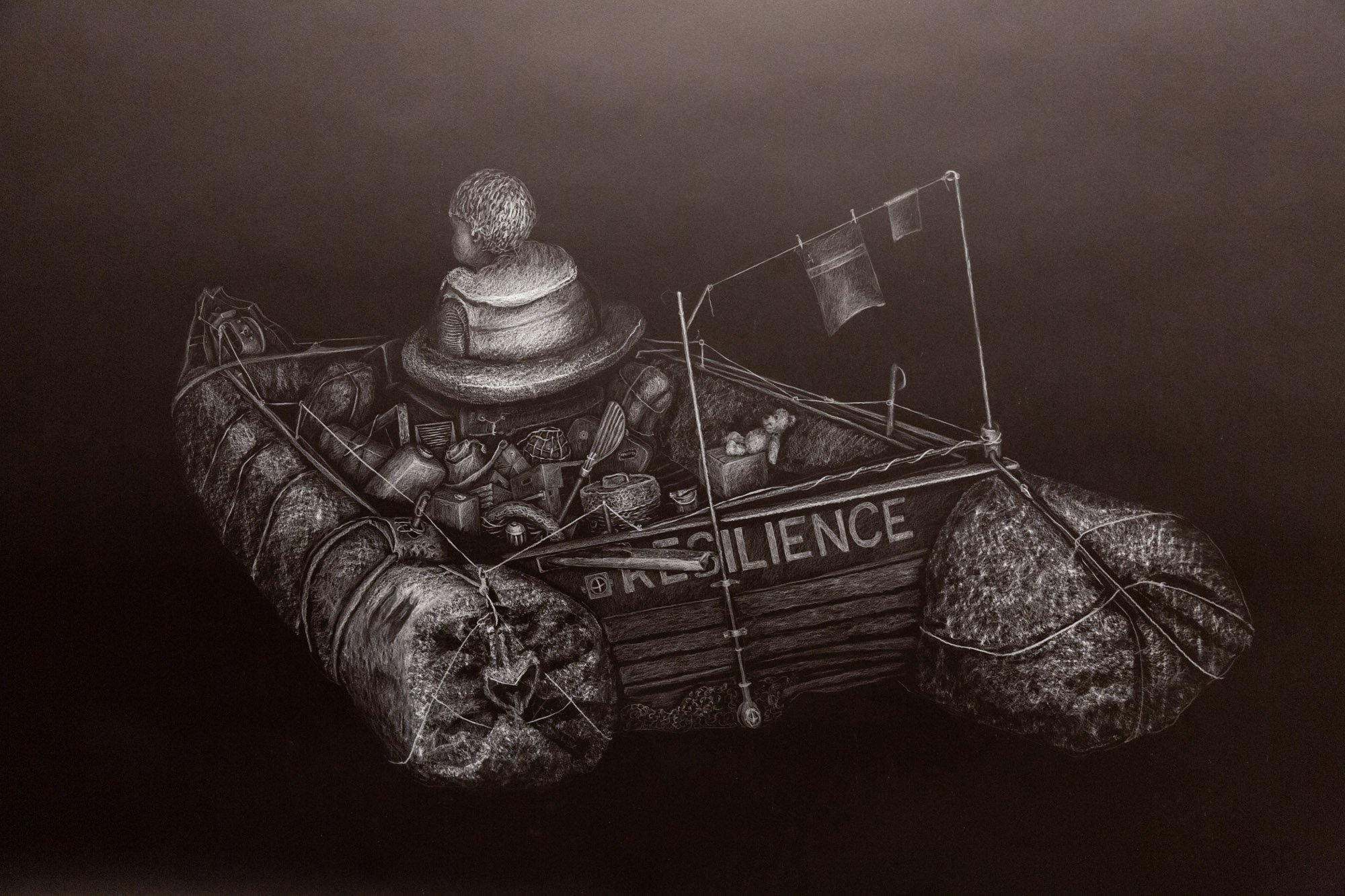Climate Lab for Artists
A Focus on “How’ing” - Adapting practices, partners, audiences and approaches
Artists
The Centre for Reworlding underscores the significant contribution creative practitioners can make in the climate emergency and disaster management ecosystem.
Impacts of the climate emergency will have lasting and compounding effects for everyone – including the diverse ways artists practice into the future. So, we (artists) are in a critical time as practitioners to reconsider our capacities and voices; how we untether from our ways of conventionally working within + across institutions; and, how we can adapt to the challenges + mitigate impacts. The Centre for Reworlding supports artists to reorient their practices through participatory programs and collaborative projects.
The Climate Crisis Artist Lab examines the role of artists in the climate emergency context with a focus on intersectional creative methodologies, transdisciplinary collaboration and speculative futuring.
What we explore
What do you consider to be the skills and knowledges needed in climate emergency risk reduction and resilience?
What skills, knowledge and expertise can you offer?
How might this workshop impact your practice?
Outcomes include:
Valuing and recognising your professional capacities, connections and artistic voices as part of the climate change ecology
Untethering from the ways of conventionally working within + across institutions
Gaining an understanding of how you can adapt to the challenges + mitigate impacts of climate change on your practice
Who is this for?
This full-day creative lab is tailored for each group, but is directed to artists, art collectives, Arts & Culture teams, arts organisations and those who work with/want to work with artists.
You might be interested in:
learning more and exploring the intersections of art, the climate emergency and speculative futures and how to transcend their own practices.
expanding understanding of transdisciplinary collaborative methods for working in partnerships across sectors and communities
how to adapt your practice as an artist in the climate context
or, someone who is a bridge-builder/translator/influencer who is interested in working more with artists and arts organisations.
Labs can be tailored to 10 - 40 people.
Rates vary for funded, community, corporate and unfunded groups.
We require a space that can have both seated and open spaces with walls for mounting paper. A/V for sound, projection and microphones required. Catering essential. We bring the rest.

What can artists contribute to climate communication + action?
Climate change has always been more of an engagement and communications crisis than an environmental one.
Artists are meaning-makers, crafters of experience, provocateurs, adept at dealing with uncertainty and complexity, agile and responsive thinkers who see risk, failure and critique as fuel in creative processes; and, most often are resistant to maintaining the status quo.
Several studies [i] have shown that effective engagement results through a combination of cognition, affect and behaviour working complementarily and synergistically.
In order for the public to fully absorb climate science research [and emergency impacts], it must be actively communicated with appropriate language, metaphor, and analogy; combined with narrative storytelling; made vivid through visual imagery and experiential scenarios; balanced with scientific information; and delivered through trusted messengers in group settings [i]
Understanding how climate change may influence people both intellectually and emotionally helps transform sustainable knowledge into effective action and sustainable practice.
Artists are familiar with the translation of complex concepts that engage audiences via creative processes, experiences and artworks that embody both aesthetic value and social meaning. Therefore, working with artists and their wealth of resources (methods, tools and experiences) can contribute to the climate communication crisis, when supported and reinforced by other mechanisms.
References
[i] Centre for Research on Environmental Decisions. "The Psychology of Climate Change Communication: A Guide for Scientists, Journalists, Educators, Political Aides, and the Interested Public.", edited by Andria Cimino. New York: Columbia University, 2009.
Leiserowitz, Anthony "Climate Change Risk Perception and Policy Preferences: The Role of Affect, Imagery, and Values." Climate Change 77, no. 1-2 (2006): 45-72.
Lorenzoni, Irene, Sophie Nicholson-Cole, and Lorraine Whitmarsh. "Barriers Perceived to Engaging with Climate Change among the Uk Public and Their Policy Implications." Global Environmental Change 17, no. 3-4 (2007): 445-59.
Moser, Susanne C., and Lisa Dilling. "Making Climate Hot: Communicating the Urgency and Challenge of Global Climate Change." Environment 46, no. 10 (2004): 32-46.
O'Neill, Saffron, and Sophie Nicholson-Cole. ""Fear Won't Do It": Promoting Positive Engagement with Climate Change through Visual and Iconic Representations." Science Communication 30, no. 3 (2009): 355-79. http://scx.sagepub.com/content/30/3/355


